Cult queer filmmaker Bruce LaBruce’s latest movie, The Misandrists, is set in a school for juvenile delinquent girls that’s actually a front for a radical lesbian feminist separatist terrorist cell known as the Female Liberation Army. Leader of the pack is Susanne Sachsse (who played a Gudrun Ensslin type figure in LaBruce’s The Raspberry Reich) as Big Mother. Disguised as a mother superior, she utters instantly iconic lines like, “No one fucks with a nun.”
Shot in the Berlin countryside (or ‘cuntryside’ as Bruce would no doubt have it) and featuring an almost exclusively female cast, the film is intended as a companion piece to LaBruce’s other extremist movie, The Raspberry Reich. Like the rest of his oeuvre (Hustler White, No Skin Off My Ass, Otto, et al) it features pornography. It’s smarter, more camp, and more articulate than any B-movie has a right to be. It even features a new song from experimental electro musician No Bra that will have you singing “down down down with the Patriarchy” as you leave the cinema.
Hot off the back of premiering The Misandrists at the 2017 Berlinale Film Festival, we spoke to the godfather of independent queer cinema about various -isms, pornography, and whether the future is female.
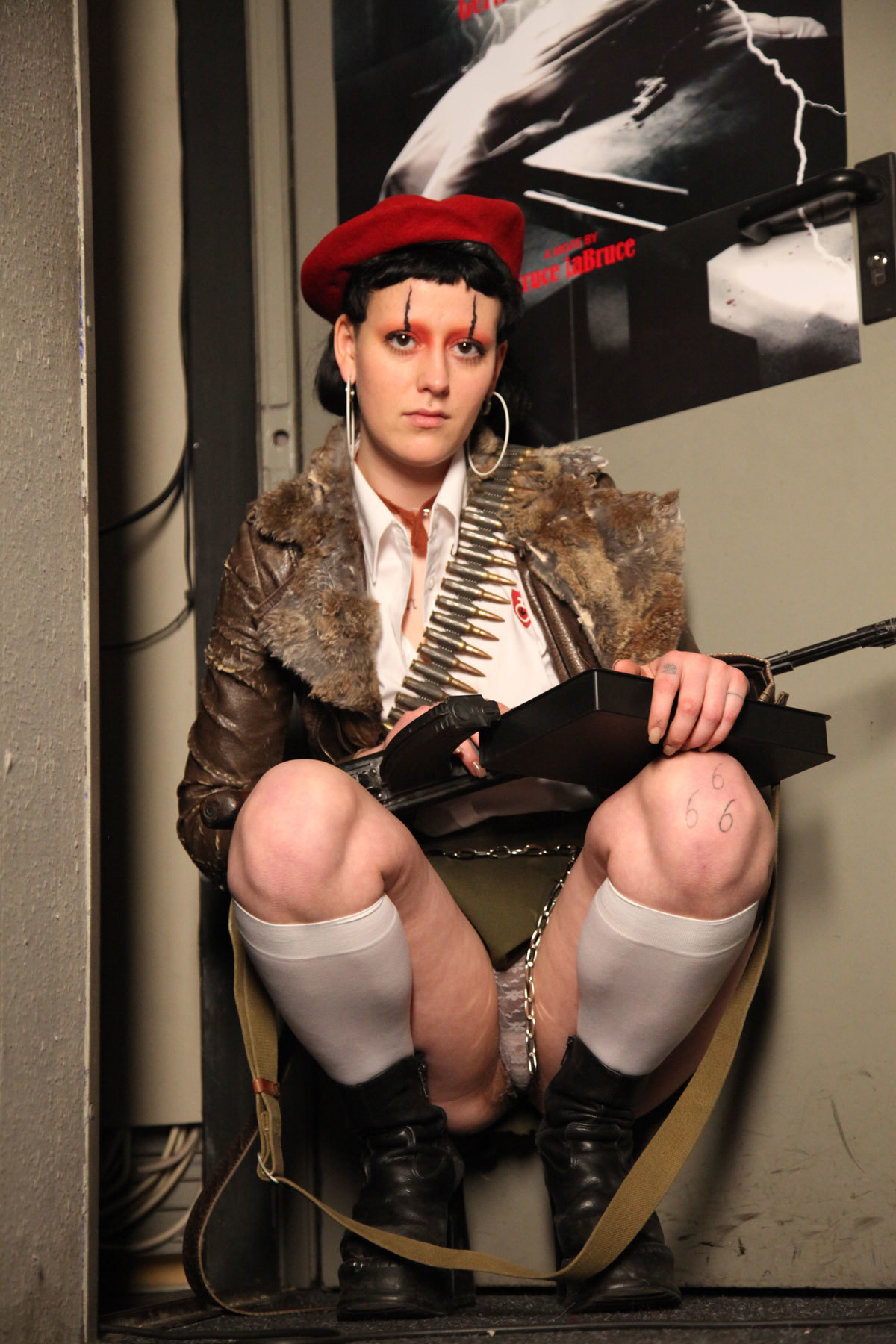
Why The Misandrists and why now?
It’s a film I had in mind since making The Raspberry Reich in 2005, which was a critique of the radical left. It was about terrorism, it referenced the Red Army Faction, and Susanne Sachsse plays a female revolutionary who forces her straight male followers to have sex with each other to prove their revolutionary commitment. A lot of lesbian friends of mine were disappointed that I didn’t include any lesbians as part of the homosexual intifada in that film, so I said someday I will make a lesbian feminist terrorist film. It’s fulfilling a promise. I’m too accommodating!
Did you worry that, as a male-identifying self-confessed member of the gay patriarchy, making a feminist lesbian movie could be problematic?
Definitely. I really do not take that kind of thing lightly. The hardest part of making the film was writing it. It was essential to get the tone right and strike the balance I struck in The Raspberry Reich, which was a critique of the radical left but also an obvious homage to it. [The film] embraces the extreme leftist ideas that the characters proposed, but it’s also a critique of how, when you get into terrorist territory, you start betraying the very ideals you started out supporting. Terrorists rationalize that by saying it’s asymmetrical warfare, that they’re actually in a crisis that amounts to war, so the same rules or morality or engagement don’t apply to them.
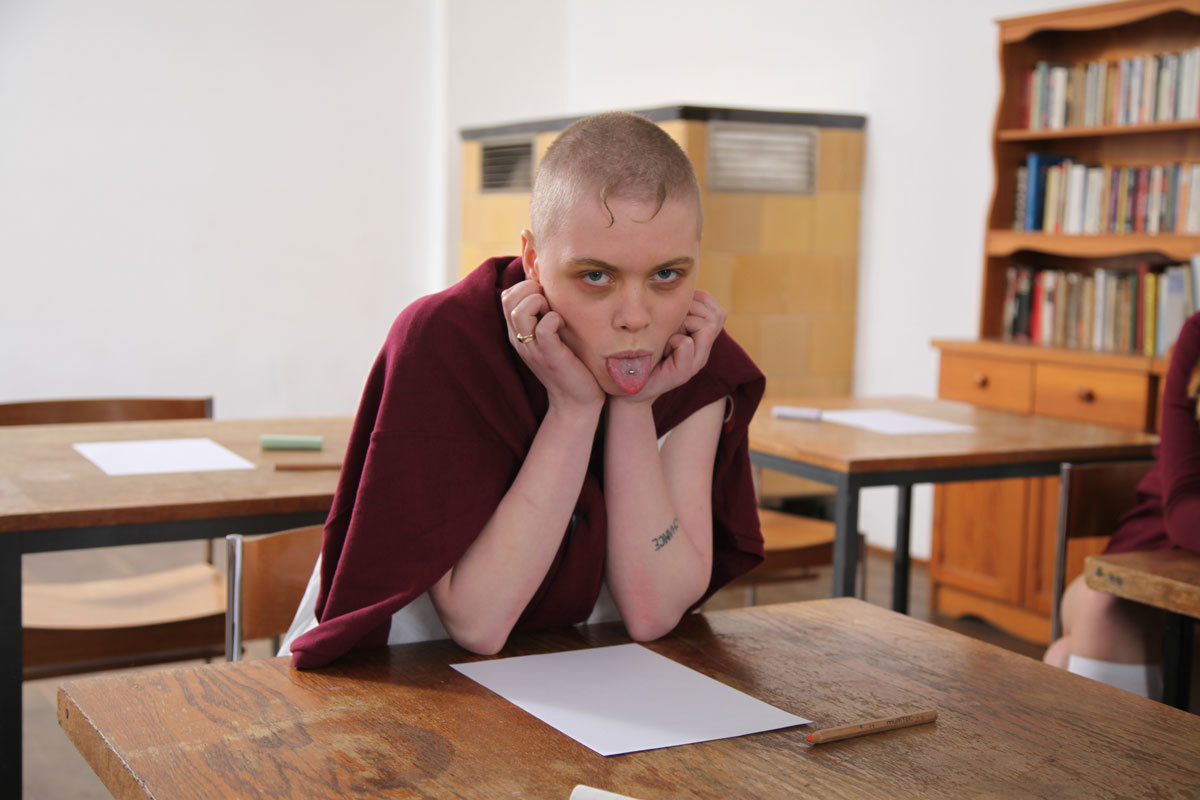
Why did you set The Misandrists in 1999?
I’m trying to go back to this moment of hope and where the idea of liberation was in the air. Essentialist feminists, many of them were anti porn. We considered them our worst enemy at that time, so this film is also addressing that and the idea of post-feminism. Post-feminism was this idea that women should succeed in a male-dominated world using the power and positions within the existing structures and, as I argue within The Misandrists, that’s a completely misguided strategy because it’s just perpetuating the system. The idea of essentialist feminism is that there’s something unique about women that would allow them to structure society in a different way. Men only give women power conditionally.
What was the casting process like for The Misandrists?
We did some more conventional casting through some agents, because I wanted to work with some young actors who are serious about pursuing an acting career. Sam and Serenity Rosa are these two 18-year-old Danish girls who are filmmakers themselves, they’re sort of it girls in Berlin now. They came to see me give a lecture and I loved their film, so I said, ‘I’d love you to be in my movie.’ Kita Updike, the trans woman, I put out a casting call for that role on Facebook and it was magical that she appeared because it was as if the role was written for her. They all bonded so strongly on set it was crazy, there was a whole parallel narrative going on that I had no access to. Several of the actors said to me it’s so unusual to have an almost all-female cast and they’d never experienced it before, so that was part of it, and just the fact that it was such a strongly feminist subject.
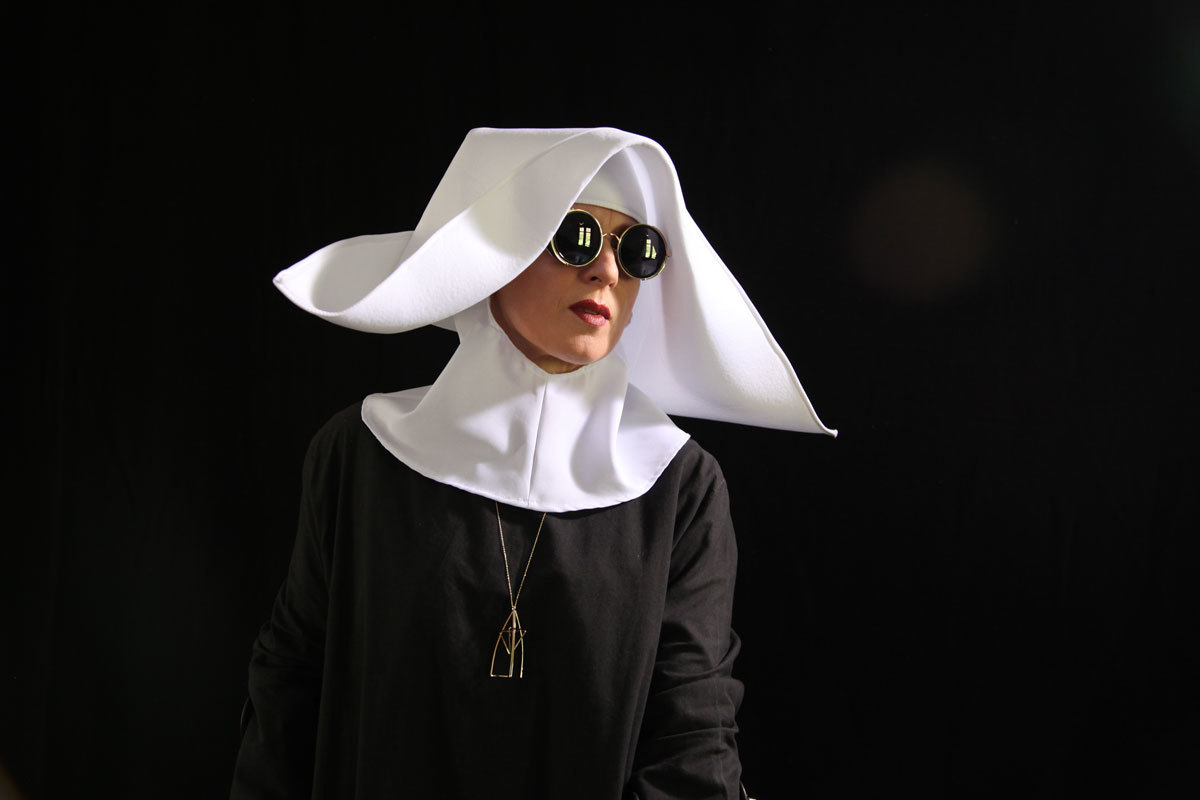
Katy Perry’s calling her new music ‘purposeful pop.’ I was thinking of how you use pornography in your work and that maybe ‘purposeful pornography’ might be a good term.
The roots of my work in pornography were always political and purposeful. I first started using pornographic imagery as a direct assault against straight punks who were homophobic. My friends and I abandoned the gay scene in the 80s because we thought it was too conservative. We thought punk was much fresher, aesthetically interesting, politically dynamic, and radical. Then we found out there was a strong strain of homophobia in the scene at that time, in America anyway. We started pushing it in their face and making unapologetic queer punk porn and saying, ‘ok if you think you’re so radical why can’t you handle this?’ I don’t understand why more people don’t use pornography for propaganda; everyone’s watching it, and when they watch it, their guard is down — not to sound too Machiavellian. You could do that much better when porn was narrative, though. That’s one of the reasons I miss narrative porn, you’re contextualizing explicit sex.
Are there any taboos left to deal with in cinema?
For independent cinema, there’s no limits except the law. So if you explore certain taboos like child sexuality then it’s a question of legality and morality, depending on where your moral compass leads you. I still am trying to make films about provocative subjects but get larger budgets for them. But that’s when you start to realize how deeply conservative cinema is in terms of how it supports the dominant ideology. How many movies are even made that pass the Bechdel test where women talk in conservation with each other without referencing men? That’s one thing you can say about The Misandrists, it passes the Bechdel test by a thousand percent!
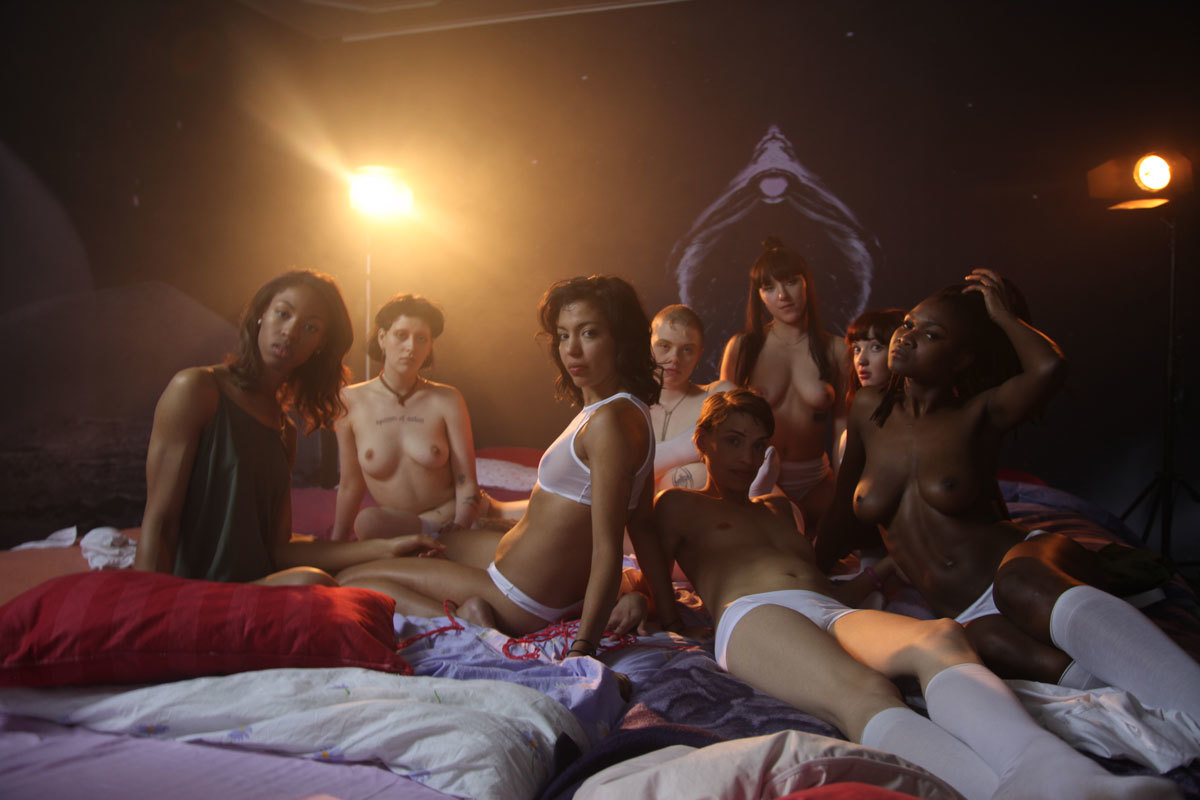
What’s the reality of being a queer independent filmmaker in 2017?
When I started out in the 80s, we were reacting against the gay mainstream. Even then, we thought the gays were bourgeois and it was a hierarchical social system and there was racism and sexism and homophobia and they tried to separate the different factions like the gays and the lesbians and classes. I just found out that a major gay film festival wouldn’t show The Misandrists because it’s a film about lesbians directed by a gay man. People are stuck in a box and thinking, ‘oh, our audiences won’t like that’ or, ‘this isn’t going to sell’ and that’s because they’re perpetuating the system.
Is the future female?
Well, the future’s not female if it’s like a slogan on a Abercrombie & Fitch T-shirt, or if Hillary Clinton says it. Fuck her, really, she has nothing to do with feminism. She’s the worst corporate post-feminist nightmare. Neo-Liberalism really is the worst evil.
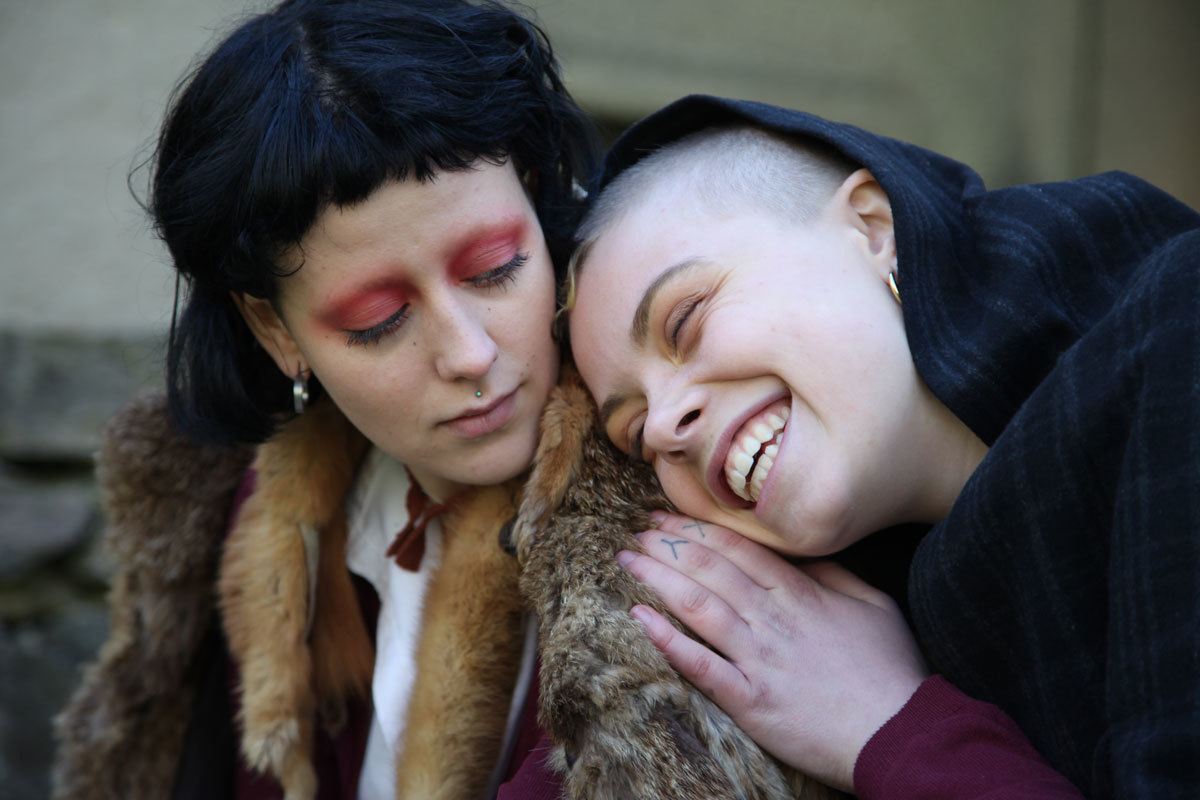
Credits
Text Russell Dean Stone
